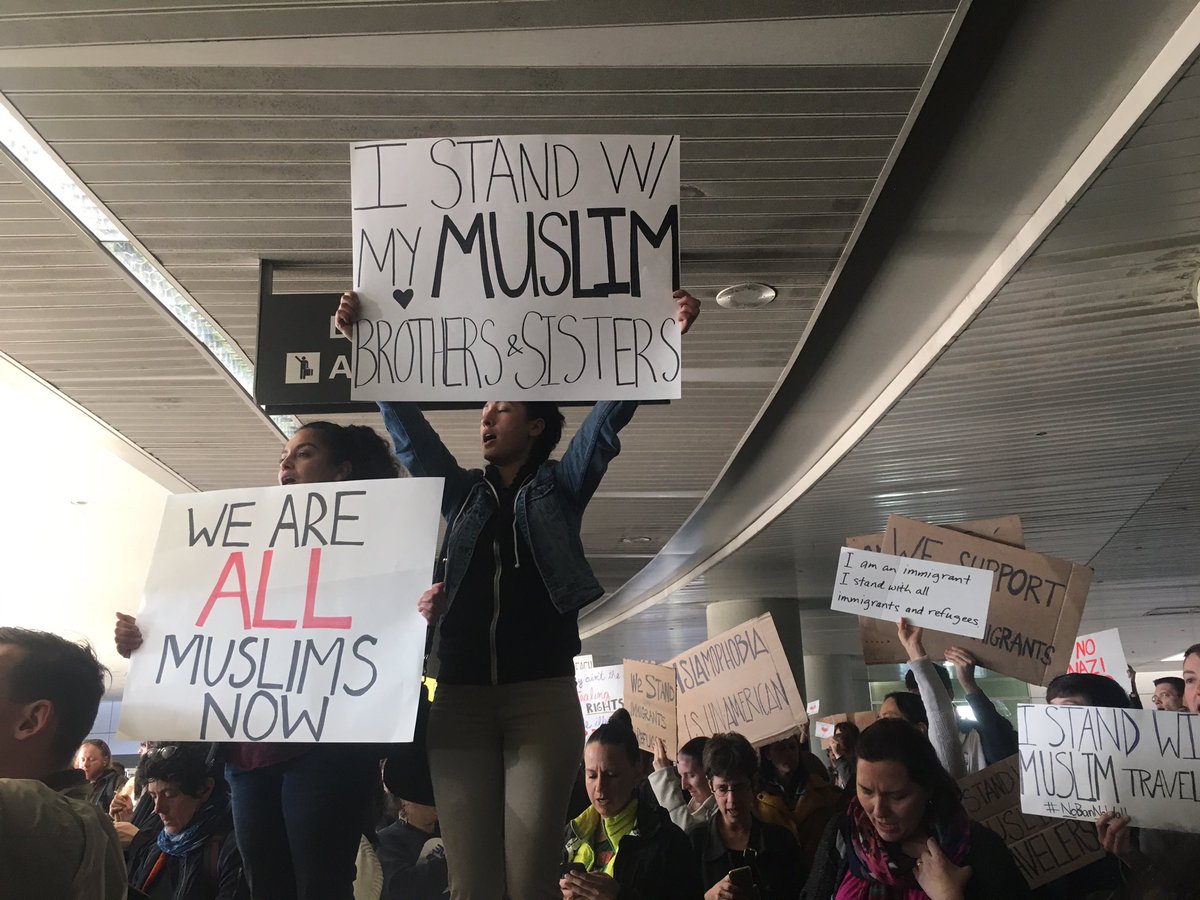President Donald J. Trump banned all immigration from 7 Muslim countries into the U.S. for three months, a measure that he says will protect the homeland from terrorists trying to infiltrate into the U.S.
The ban makes an exception to groups persecuted on religious grounds, except Muslims, and includes Syria, Yemen, Sudan, Somalia, Iraq, Iran, and Libya. The executive order Mr. Trump signed on Friday also completely suspends Syrian refugees indefinitely. The U.S. is the biggest donor for Syrian refugees in the Middle East but accepted the least number of people fleeing violence in Syria among major Western nations.
The 7-page executive order also suspended all refugee programs for 120 days from all countries while authorities review the admission process. The order was signed right after his Defense Secretary James Mattis’s swearing-in ceremony. Mr. Trump also signed an executive order rebuilding the U.S. military and modernizing armaments.
With the new executive order, the U.S. will accept 50,000 people this year, almost 35,000 less than last year. Nearly 13,000 refugees in 2016 were from Syria.
The most affected community was Iranians, who are mostly 2nd generation Americans and whose relatives will be unable to join them for at least 4 months. The ban also affects students from these 7 countries, some of whom went to their country for a vacation and won’t be allowed to return.
Meanwhile, critics of the ban shared a past tweet posted by Vice President Mike Pence, who described the call on Muslims to be banned from the U.S. “offensive and unconstitutional.”
Calls to ban Muslims from entering the U.S. are offensive and unconstitutional.
— Governor Mike Pence (@GovPenceIN) December 8, 2015





















